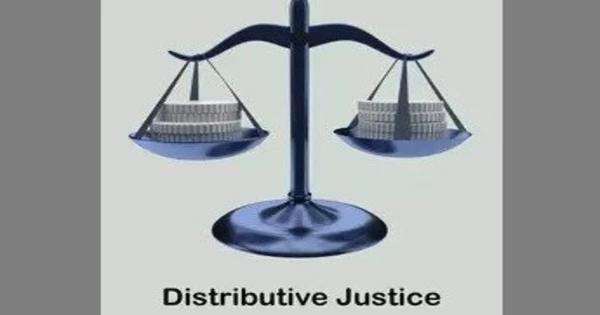Distributive justice is a concept in political philosophy that concerns the fair distribution of resources and benefits within a society. It is concerned with the equitable distribution of resources. It is concerned with the allocation of goods and services, such as wealth, income, opportunities, and social benefits, and ensuring that everyone has access to these resources in a just and equitable manner. When compared to the just process, which is concerned with the administration of the law, distributive justice is concerned with outcomes. This topic has received a lot of attention in philosophy and the social sciences.
The main goal of distributive justice is to ensure that resources and benefits are distributed in a way that promotes social welfare, reduces inequality, and promotes equal opportunities for all members of society. There are several different theories of distributive justice, including utilitarianism, Rawlsian liberalism, libertarianism, and communitarianism, each with different approaches to the allocation of resources and benefits.
Theorists have developed widely disparate ideas about distributive justice. These have influenced discussions about how to organize social, political, and economic institutions to promote the equitable distribution of benefits and burdens within a society. The majority of contemporary theories of distributive justice are predicated on the assumption of material scarcity. That precondition necessitates the development of principles to resolve competing interests and claims regarding the equitable or at least morally preferable distribution of scarce resources.
In social psychology, distributive justice is defined as the perceived fairness with which group members share (distribute) rewards and costs. For example, when some employees work longer hours but are paid the same, group members may believe that distributive justice has not been met. Individuals frequently look to their group’s behavioral expectations to determine whether distributive justice has occurred. If rewards and costs are allocated in accordance with the group’s designated distributive norms, distributive justice has occurred.
One of the key challenges of distributive justice is determining what counts as a fair distribution of resources and benefits, and how to achieve such a distribution in practice. This requires a consideration of factors such as merit, need, and desert, as well as the role of institutions and social norms in shaping the distribution of resources and benefits.















